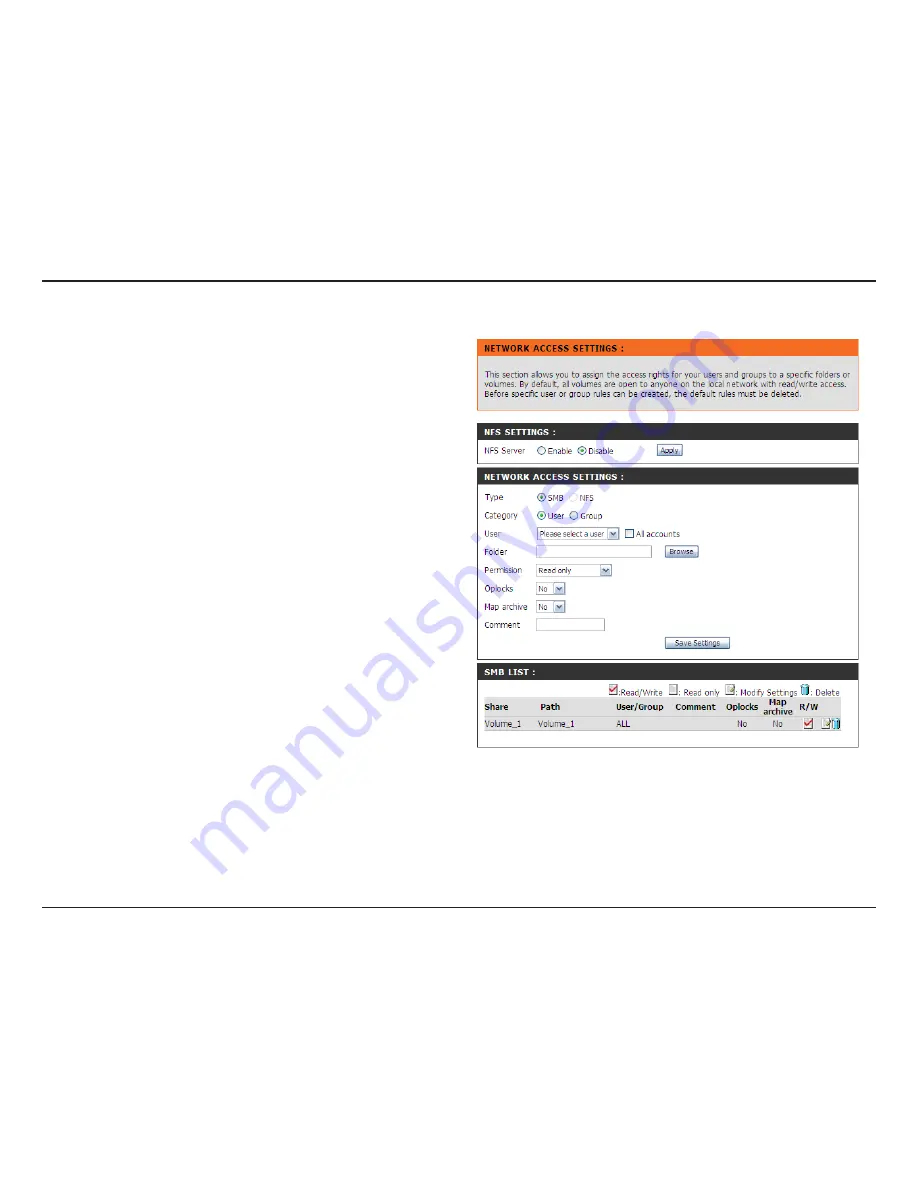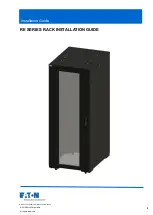
D-Link DNS-343 User Manual
29
Network Access Page (SMB)
The Network Access settings allow you to assign permissions for users and groups
to specific folders or volumes. By default, all volumes are open to anyone on the local
network with read/write access. Before specific user or group rules can be created, the
default rules must be deleted.
Choose whether or not to enable or disable NFS (Network File
System).
Assign permissions for users and groups on the local network
here.
Determines whether the access rule will apply to a group or
individual user.
Select the user or group the access rule will apply to.
Browse to and select the folder or directory you are controlling
access to.
Set the user or group permission to Read Only or Read/Write.
Opportunistic locks (oplocks) are a characteristic of the LAN
Manager networking protocol implemented in the 32-Bit Windows
family. Oplocks are guarantees made by a server for a shared
logical volume to its clients. These guarantees inform the Client
that a file’s content will not be allowed to be changed by the
server, or if some change is imminent, the client will be notified
before the change is allowed to proceed.
NFS Server Settings:
Network Access Settings:
Category:
User / Group:
Folder:
Permission:
Oplocks:
Map Archive:
Comment:
SMB List:
Oplocks are designed to increase network performance when it comes to network file sharing however when using file-based database applications it is recommended to set
the share oplocks to No(off). By default Vista has Oplocks enabled and can not be disabled. If you are having network performance issues with applications sharing files from
the DNS-343 you may try to improve performance by setting Oplocks to No(off).
When enabled, the file attribute ”Archive” will be copied as the file is being stored on the DNS-343. Certain backup software attach this attribute to files that are being stored
as backups.
Enter a comment for reference or description of the rule.
Lists all defined access rules.
















































